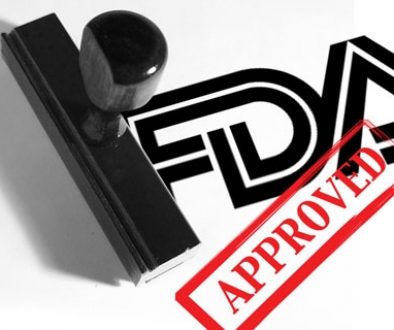Women's Health Week: Tips for Taking Care of You
This week is National Women’s Health Week. Led by the U.S. Department of Health and Human Services Office on Women’s Health, the goal is to empower women to make their health a priority. This is also a time to help women understand what steps they can take to improve their health.
What steps can I take for better health?
- Get active;
- Eat healthy;
- Pay attention to mental health, including getting enough sleep and managing stress;
- Avoid unhealthy behaviors, such as smoking, texting while driving, and not wearing a seatbelt or bicycle helmet;
- And visit a doctor or nurse to receive regular checkups and preventive screenings.
Find your age group below and learn what steps you should take for good health based on your age:
Ages 18-39
High Blood Pressure:
- Get tested at least every 2 years if you have normal blood pressure (lower than 120/80)
- Get tested once a year if you have blood pressure between 120/80 and 139/89
- Discuss treatment with your doctor or nurse if you have blood pressure 140/90 or higher
Reproductive Health:
- Get a Pap test every 3 years if you are 21 or older and have a cervix
- If you are 30 or older, you can get a Pap test and HPV test together every 5 years
- Get tested for chlamydia yearly through age 24 if you are sexually active or pregnant
- Age 25 and older, get tested for chlamydia if you are at increased risk, pregnant or not pregnant
- Get tested for gonorrhea if you are sexually active and at increased risk, pregnant or not pregnant
- Get tested for HIV at least once
- Discuss your risk with your doctor or nurse because you may need more frequent tests for HIV
- All pregnant women need to be tested for HIV
- Get tested for syphilis if you are at increased risk or pregnant
Cholesterol:
- Starting at age 20, get a cholesterol test regularly if you are at increased risk for heart disease
- Ask your doctor or nurse how often you need your cholesterol tested
Diabetes:
- Get screened for diabetes if your blood pressure is higher than 135/80 or if you take medicine for high blood pressure.
Ages 40-49
High Blood Pressure:
- Get tested at least every 2 years if you have normal blood pressure (lower than 120/80)
- Get tested once a year if you have blood pressure between 120/80 and 139/89
- Discuss treatment with your doctor or nurse if you have blood pressure 140/90 or higher
Breast Cancer Screening:
- Discuss with your doctor
Reproductive Health:
- Get a Pap test and HPV test together every 5 years if you have a cervix
- Get tested for chlamydia if you are sexually active and at increased risk, pregnant or not pregnant
- Get tested for gonorrhea if you are sexually active and at increased risk, pregnant or not pregnant
- Get tested for HIV at least once
- Discuss your risk with your doctor or nurse because you may need more frequent tests for HIV
- All pregnant women need to be tested for HIV
- Get tested for syphilis if you are at increased risk or pregnant
Cholesterol:
- Get a cholesterol test regularly if you are at increased risk for heart disease
- Ask your doctor or nurse how often you need your cholesterol tested
Diabetes:
- Get screened for diabetes if your blood pressure is higher than 135/80 or if you take medicine for high blood pressure.
Ages 50-64
High Blood Pressure:
- Get tested at least every 2 years if you have normal blood pressure (lower than 120/80)
- Get tested once a year if you have blood pressure between 120/80 and 139/89
- Discuss treatment with your doctor or nurse if you have blood pressure 140/90 or higher
Bone Mineral and Density Test
- Discuss with your doctor if you are at risk of osteoporosis
Breast Cancer Screening:
- Starting at age 50, get screened every 2 years or as recommended by your doctor
Reproductive Health:
- Get a Pap test and HPV test together every 5 years if you have a cervix
- Get tested for chlamydia if you are sexually active and at increased risk
- Get tested for gonorrhea if you are sexually active and at increased risk,
- Get tested for HIV at least once
- Discuss your risk with your doctor or nurse because you may need more frequent tests for HIV
- Get tested for syphilis if you are at increased risk
Cholorectal Cancer Screening:
- Starting at age 50, get screened for colorectal cancer.
- Talk to your doctor about screen test options and which screening test is best for you and how often you need it.
Cholesterol:
- Get a cholesterol test regularly if you are at increased risk for heart disease
- Ask your doctor or nurse how often you need your cholesterol tested
Diabetes:
- Get screened for diabetes if your blood pressure is higher than 135/80 or if you take medicine for high blood pressure.
Ages 65 and older
High Blood Pressure:
- Get tested at least every 2 years if you have normal blood pressure (lower than 120/80)
- Get tested once a year if you have blood pressure between 120/80 and 139/89
- Discuss treatment with your doctor or nurse if you have blood pressure 140/90 or higher
Bone Mineral and Density Test
- Get this test at least once at age 65 or older
- Talk to your doctor or nurse about repeat testing
Breast Cancer Screening:
- Get screened every 2 years through age 74
- Age 75 and older, ask your doctor or nurse if you need to be screened
Reproductive Health:
- Ask your doctor if you need to get a Pap test
- Get tested for chlamydia if you are sexually active and at increased risk
- Get tested for gonorrhea if you are sexually active and at increased risk,
- Get tested for HIV at least once if you are age 65 and have never been tested
- Discuss your risk with your doctor or nurse because you may need more frequent tests for HIV
- Get tested for syphilis if you are at increased risk
Cholorectal Cancer Screening:
- Get screened for colorectal cancer through age 75
- Talk to your doctor about screen test options and which screening test is best for you and how often you need it.
Cholesterol:
- Get a cholesterol test regularly if you are at increased risk for heart disease
- Ask your doctor or nurse how often you need your cholesterol tested
Diabetes:
- Get screened for diabetes if your blood pressure is higher than 135/80 or if you take medicine for high blood pressure.
Source: U.S. Dept of Health & Human Services



